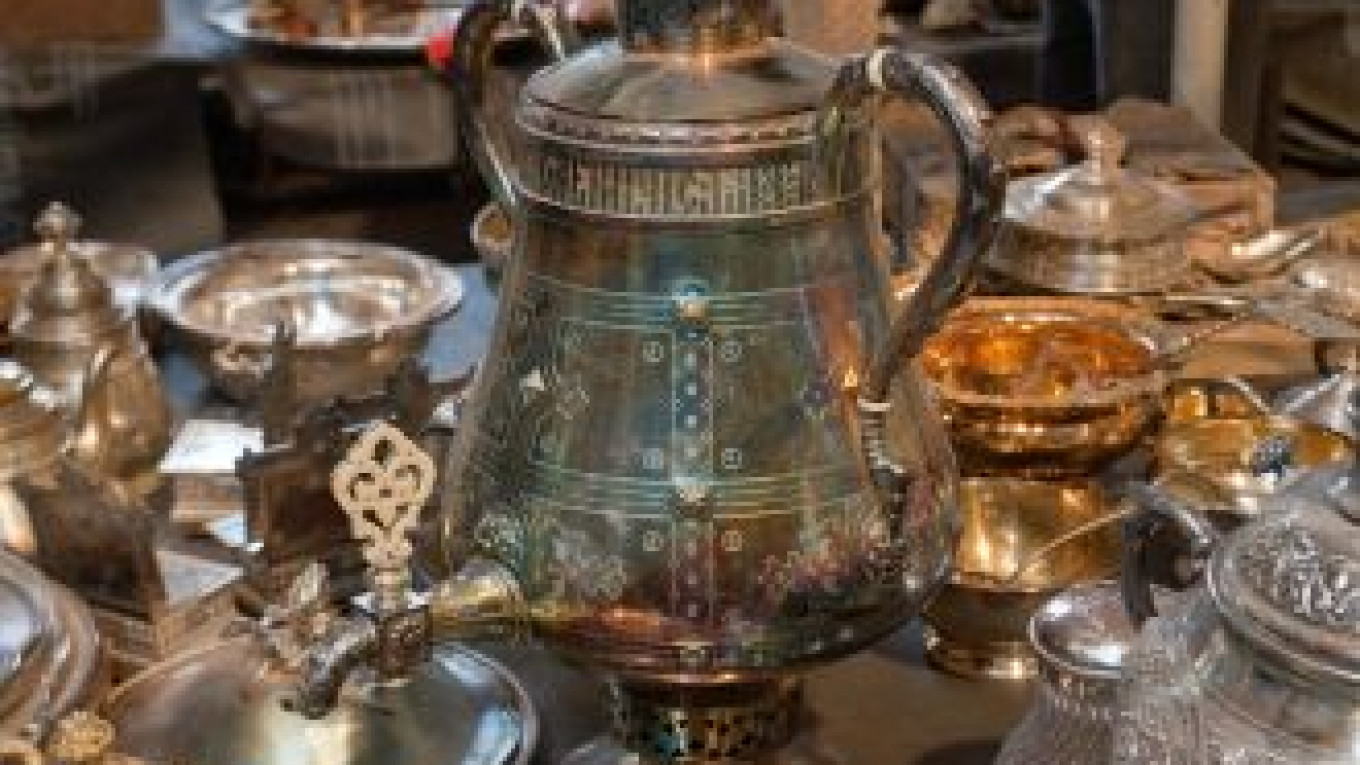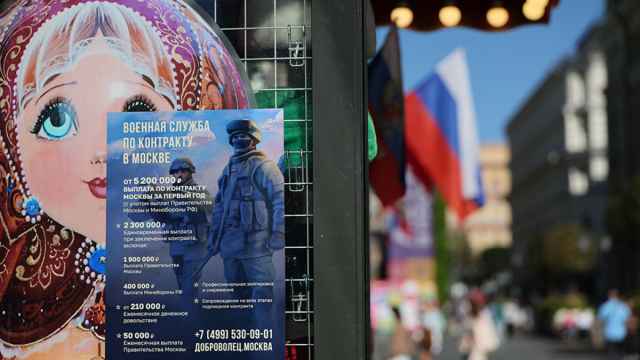ST. PETERSBURG — For years, kopek-pinching Soviets sat down in a cheap restaurant in a former mansion of the nobility for plain meals, unaware of the treasure secreted nearby.
Workers restoring the building this week finally found it, unexpectedly, in a storage space hidden between two floors: more than 1,000 pieces of jewelry, silver service sets stamped with the name of one of Russia's most prominent noble families, mirrors and brushes in silver frames.
Many of them were wrapped in newspapers dated from the early months of 1917.
Friday's announcement of the find by Intarsia, which is performing the restoration work, sparked arguments over who can claim the valuables.
The find is so new that experts haven't had time to inspect the goods and estimate their value.
The treasure tale touches on two of Russia's most renowned and romantic figures: Peter the Great and Alexander Pushkin.
The mansion was purchased in 1875 by Duke Vasily Naryshkin, whose family included Natalya Naryshkina, the second wife of Tsar Alexis and the mother of Peter the Great.
The mansion had been put together by connecting two 18th-century houses, one of which belonged to Pushkin's African grandfather, Abram Gannibal.
After the Bolsheviks nationalized private property, part of the mansion was turned into a stolovaya, a restaurant serving utilitarian meals, according to Russian news reports.
Following the collapse of the Soviet Union, the building was converted into residential use. It was subsequently purchased by Intarsia to be turned into a conference and cultural center.
Intarsia said it would like to display the treasures for public view in the cultural center once it's completed. For now, they're in custody of the city's committee for historical preservation.
But a determination of who has the final claim to them has yet to be made.
Sergei Malinkovich, head of a regional Communist organization, told Rosbalt that his group will apply for ownership of the items on the grounds that the group is the successor to the Communists, who nationalized state property.
"The essential thing here is that at the moment of the creation of the hiding place, the treasure was no longer property of the Naryshkins," he said.
The state news agency cited Ivan Artsishevsky, chairman of the House of Romanov, as saying the closest surviving relative of the house's former occupants lives in France and that it is unclear whether that person will seek the valuables.
A Message from The Moscow Times:
Dear readers,
We are facing unprecedented challenges. Russia's Prosecutor General's Office has designated The Moscow Times as an "undesirable" organization, criminalizing our work and putting our staff at risk of prosecution. This follows our earlier unjust labeling as a "foreign agent."
These actions are direct attempts to silence independent journalism in Russia. The authorities claim our work "discredits the decisions of the Russian leadership." We see things differently: we strive to provide accurate, unbiased reporting on Russia.
We, the journalists of The Moscow Times, refuse to be silenced. But to continue our work, we need your help.
Your support, no matter how small, makes a world of difference. If you can, please support us monthly starting from just $2. It's quick to set up, and every contribution makes a significant impact.
By supporting The Moscow Times, you're defending open, independent journalism in the face of repression. Thank you for standing with us.
Remind me later.






